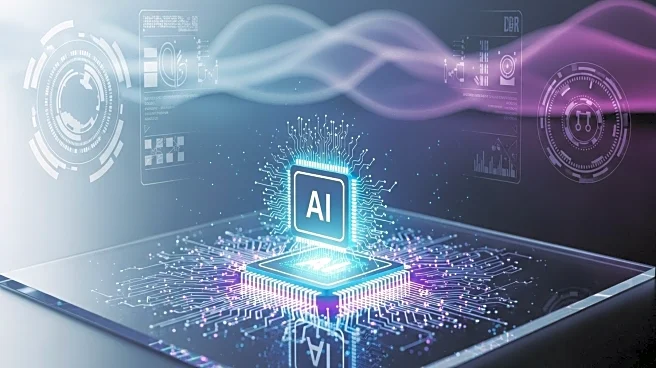What's Happening?
The field of AI for clinical decision-making is rapidly advancing, focusing on the use of machine learning, natural language processing, and other AI techniques to support physicians in diagnostic, prognostic, and therapeutic decisions. AI systems are designed to process complex datasets, including electronic health records, medical imaging, genomic information, and real-time patient data, to provide timely, data-driven insights. These systems aim to reduce diagnostic errors, personalize treatment plans, and improve patient outcomes. Notable progress has been made in medical image analysis, where deep learning models now surpass human-level performance in detecting certain abnormalities. Predictive analytics is also evolving, with models capable of forecasting patient deterioration, sepsis onset, and hospital readmission risk using both structured and unstructured clinical data.
Why It's Important?
The advancement of AI in clinical decision-making holds significant potential for the healthcare industry. By enhancing diagnostic accuracy and personalizing treatment plans, AI can improve patient outcomes and reduce healthcare costs. The ability of AI systems to process vast amounts of data quickly and accurately can lead to more efficient healthcare delivery and better resource allocation. Furthermore, the development of privacy-preserving AI technologies addresses data-sharing limitations while safeguarding patient confidentiality, which is crucial for gaining trust among healthcare providers and patients. As AI systems become more interpretable and clinically validated, they are likely to achieve regulatory approval, further integrating into healthcare practices.
What's Next?
The future of AI in clinical decision-making involves the continued development of multimodal learning frameworks that integrate diverse data sources into cohesive predictive tools. Research is encouraged to focus on privacy-preserving AI technologies and interpretable systems that can gain regulatory approval. As AI systems become more sophisticated, they are expected to play a larger role in clinical documentation and patient interaction through conversational AI systems. The ongoing evolution of AI in healthcare will likely lead to more widespread adoption and integration into clinical practices, potentially transforming the industry.
Beyond the Headlines
The ethical implications of AI in healthcare are significant, particularly concerning patient privacy and data security. As AI systems become more integrated into clinical decision-making, it is essential to address these concerns to maintain trust and ensure compliance with regulations. Additionally, the cultural shift towards AI-driven healthcare may require adjustments in medical education and training to prepare healthcare professionals for working alongside AI technologies.









